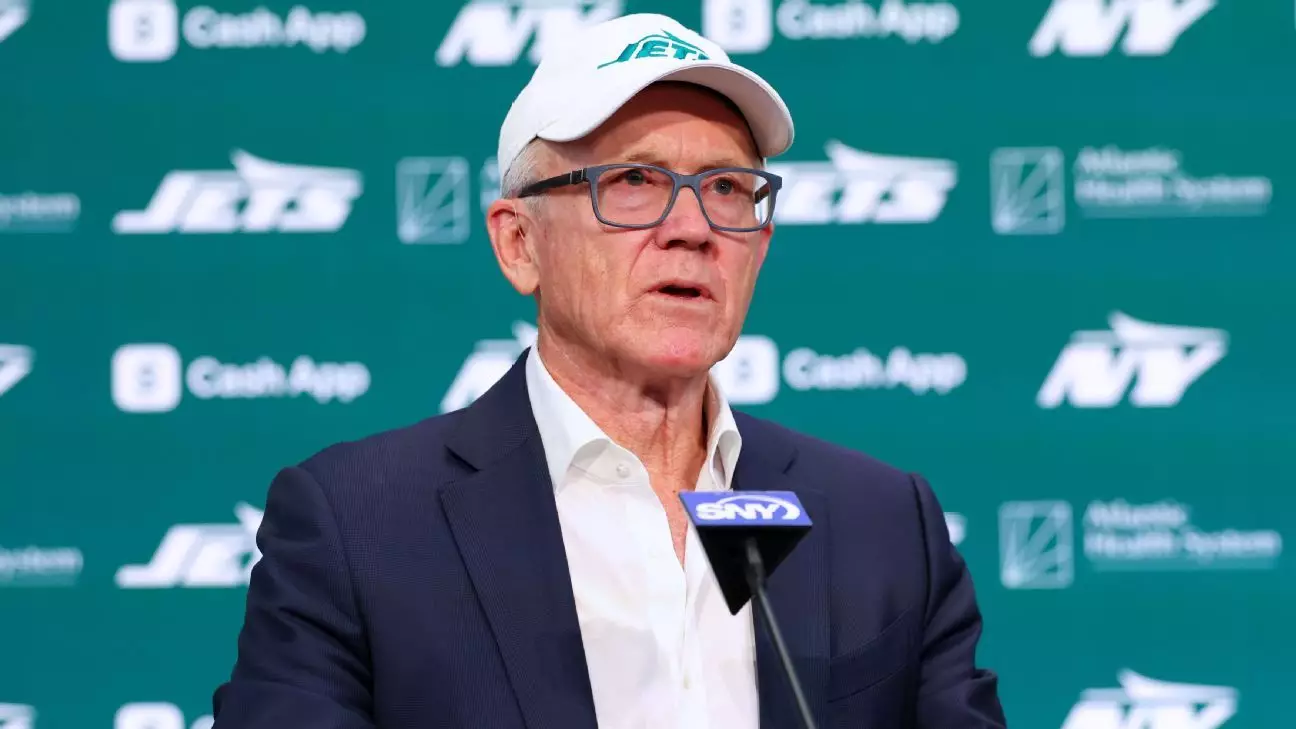The recent acquisition of a significant stake in Crystal Palace by Woody Johnson marks a pivotal moment not only for the club but also for the broader landscape of English football. With a substantial investment of approximately £190 million ($254 million) for a 43% share, Johnson’s entry injects fresh financial strength and a new strategic perspective into the Eagles’ hierarchy. This move signifies more than just a financial transaction; it heralds an era where ambitious aspirations meet pragmatic leadership. Johnson’s involvement, alongside existing owners and executives, is poised to catalyze a new chapter defined by innovation, competitiveness, and a relentless pursuit of excellence.
Johnson’s reputation as a seasoned businessman and a former U.S. ambassador confers a distinctive dimension to his ownership. His comments underscore a deep respect for the club’s heritage and the passionate fanbase that has supported Crystal Palace through decades of ups and downs. This blend of admiration for tradition coupled with a drive for modern growth sets the stage for an ambitious refresh of the club’s development strategy, both on and off the pitch.
Strategic Implications and Potential Transformation
One of the most compelling aspects of Johnson’s investment is his apparent willingness to embrace a long-term vision. While financial power alone does not guarantee success, it provides the resources necessary for sustainable growth. Strategic investments in player development, infrastructure, and scouting networks are likely to become focal points under Johnson’s guidance. Historically, owners with a global perspective—especially those with high-stakes backgrounds—have the capacity to elevate clubs from mid-table mediocrity to competitive contenders.
Furthermore, Johnson’s influence bodes well for Palace’s ambitions in European competitions. Despite ongoing disputes with UEFA over their relegation from the Europa League to the Conference League—an issue intertwined with complex multi-club ownership rules—the club remains steadfast in its pursuit of justice. This legal battle underscores the importance of transparent governance and strategic clarity. Johnson’s reputation as a pragmatic operator might serve to navigate these challenges more effectively, bolstering the club’s legal, commercial, and diplomatic standing.
From a fan engagement perspective, Johnson’s expressed admiration for Eagles supporters highlights his understanding of the importance of community loyalty. By aligning himself with the passionate, often vocal fanbase, he signals an intent to foster a culture of unity and shared purpose. This emotional connection could prove vital in reinvigorating the club’s identity and morale as they aim for renewed success.
Challenges and Critical Considerations
However, Johnson’s arrival doesn’t come without substantial challenges. The legal dispute with UEFA represents a significant hurdle—not just because it impacts European competition participation but also due to the broader concerns about ownership transparency and compliance. The club’s rejection from the Europa League threatens both prestige and financial gains, making the legal fight critical for long-term stability.
Moreover, Johnson’s past flirtations with Premier League clubs—most notably his failed bid to buy Chelsea—expose the complexities and risks of high-profile ownership ambitions. While his global business acumen and diplomatic experience bring valuable assets to Palace, translating these capabilities into sporting success requires careful planning and a nuanced understanding of English football’s competitive landscape.
Lastly, it’s essential to recognize that football is an unpredictable sport, and no amount of financial investment or strategic planning guarantees silverware. Johnson’s influence must be measured against the volatile realities of player performance, managerial decisions, and fan expectations. Balancing ambition with pragmatism will be the ultimate test of his impact on the Eagles’ future.
Woody Johnson’s entry into Crystal Palace is a moment of considerable optimism tempered by realism. His willingness to invest heavily and his expressed respect for the club’s culture suggest a genuine desire to propel the Eagles to new heights. Yet, substantive challenges—particularly legal disputes and competitive obstacles—loom large. How he leverages his resources, navigates complex governance issues, and aligns with the club’s passionate supporters will ultimately determine the extent of his legacy at Palace. For now, the club stands at the cusp of transformation, with an owner whose vision could redefine the contours of Palace’s journey in the Premier League and beyond.

Leave a Reply